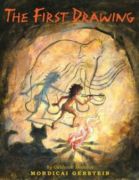
In the segregated south of Kentucky in 1953, twelve-year-olds Callie, who is black, and Wendell, who is white, are brought together by an old dog that is clearly seeking something or someone, but they not only face prejudice, they find trouble at a haunted cabin in the woods.
See the review at WOW Review, Volume 8, Issue 4









